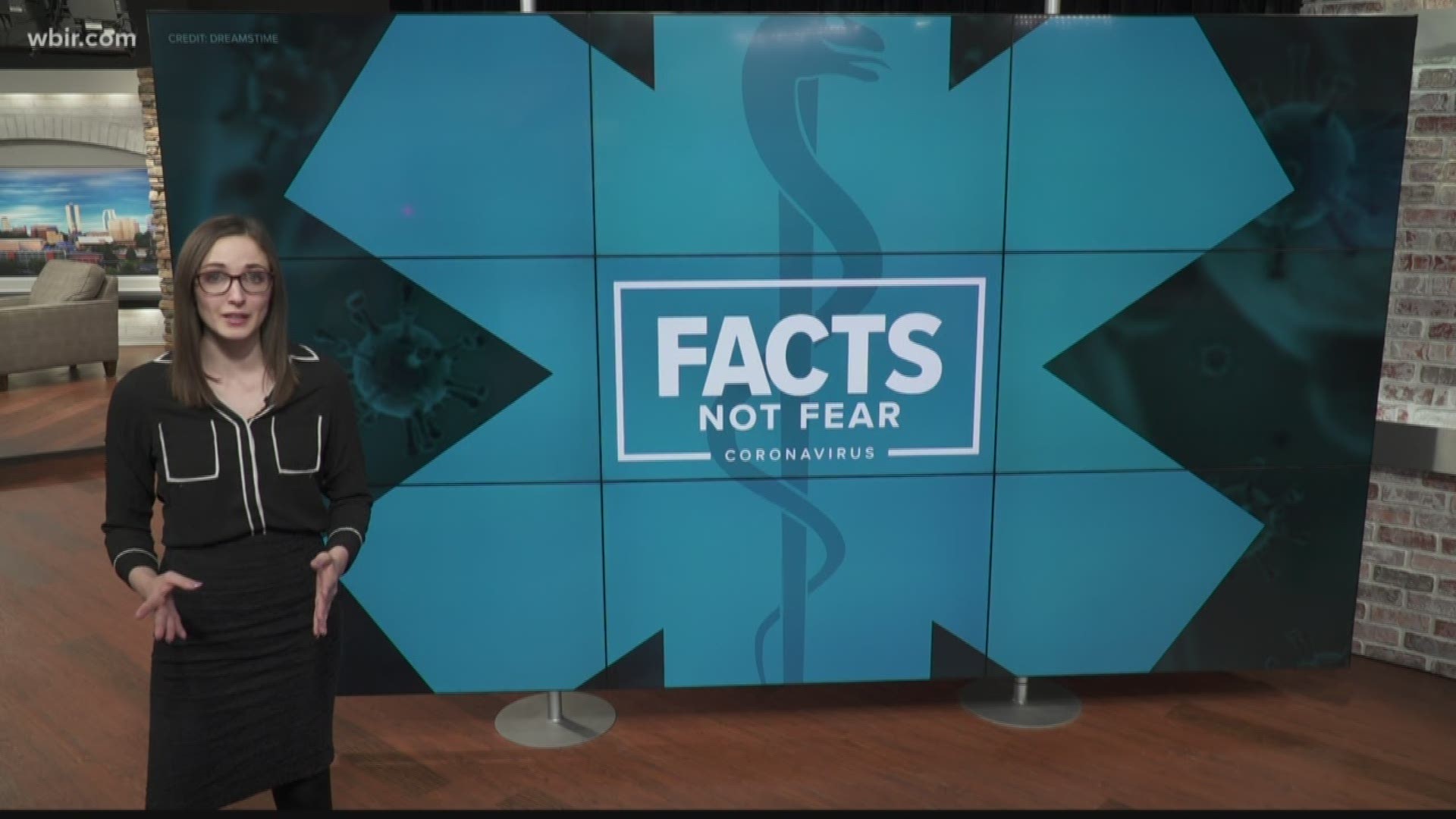KNOXVILLE, Tenn. — This week, Tennessee leaders announced the first confirmed case of COVID-19, also known as coronavirus, in the state.
Tennessee Department of Health Commissioner Dr. Lisa Piercey said a 44-year-old male in Williamson County has very mild symptoms and is isolated in his home.
They are continuing to emphasize that the risk to the general public is low.
"We also want to remind people that keeping it in perspective is important," Gov. Bill Lee said. "The vast number of cases are mild."
We spoke with area hospitals about how they are preparing for potential coronavirus cases.
Blount Memorial Hospital
"We’re not panicking, but rather, ensuring we’re prepared," public relations manager Josh West said. "Our stance is 'Be prepared, but don’t panic.'"
At Blount Memorial Hospital, they have a four-phase preparedness plan that they are updating based on guidance from the CDC, TDH and their colleagues at the Mayo Clinic.
West said at a high level, the plan includes preparing their front-line staff who may be the first point of contact, ensuring they are prepared with the physical plant and supplies, and collaborating with health officials across the region.
"As part of our plan, patients who screen positive for a potential case are placed in private isolation rooms," West said. "Additionally, we would utilize negative pressure rooms and will expand capacity for additional negative pressure rooms/units if needed."
Blount Memorial has specific guidelines for employees to follow, which include using PPE like they do for all types of infections that they encounter. West said the hospital has adequate supplies on hand should the community see an outbreak.
Blount Memorial Hospital is encouraging anyone who is concerned about coronavirus due to symptoms to call their physician rather than just showing up.
"We want people to know that skipping their regular medical appointments and diagnostic testing out of concern for potential exposure to coronavirus is something that should be avoided," West said. "It is unnecessary and could complicate existing medical conditions."
East Tennessee Children's Hospital
"We have infection control measures in place at all times to protect our staff, patients and visitors to the hospital," public relations manager Erica Estep said. "We continue to stress infection control measures, just like for cold and flu, for employees and visitors alike."
They are getting regular updates and guidance from the Tennessee Department of Health (TDH), as well as the Centers for Disease Control (CDC). Estep said Children's Hospital has developed an internal coronavirus task force.
They are also collaborating with other area hospitals, health departments and other health care agencies to provide up to date infromation to their clinical and support staff.
Any employees with a temperature above 100 degrees are being asked to stay home. In additional, clinical staff has been asked to conserve personal protective equipment (PPE) to essential use only to ensure they have sufficient inventories.
"Isolation masks, for example, will be held by staff rather than placed in public places for anyone to grab," Estep said. "We have restrictions on students, volunteers and other visitors who would require PPE use (such as in the OR)."
Fort Sanders Regional Medical Center (Covenant Health)
"Covenant Health’s first priorities are the safety, welfare and privacy of our patients at all of our facilities," Covenant Health told 10News. "Our medical professionals have been trained to properly identify any patients who may have contagious illnesses that could be considered a risk to public health."
Fort Sanders Regional Medical Center, which is Covenant Health's flagship hospital, has protocols in place to ensure any patients who may have an infectious disease to receive appropriate screenings and care, including isolation if necessary.
They are collaborating with local authorities to monitor developments and will update their plans and protocols accordingly.
"We are working hard to ensure we have adequate supplies of gowns, masks and gloves to protect employees who may be asked to care for a patient who has a contagious illness, including COVID-19," Covenant Health said. "As always, we are following stringent infection control guidelines at our hospitals, nursing homes and clinics."
Tennova Hospitals and Clinics
"Our hospitals continually work to be prepared for all types of infectious diseases," East Tennessee director of marketing Ann Metz said. "We have been educating our team members on the infection control protocols established by the CDC for the COVID-19, just as we do for other types of infectious diseases."
Tennova hospitals and clinics are screening patients for known risk factors like fever and signs/symptoms of lower respiratory illness, travel to areas with many identified cases, or close contact with someone who has traveled to an area of concern.
If they meet those criteria, they will be given a mask, isolated in a private room or separate area and attending staff will wear protective equipment.
"Testing and the patient’s ultimate disposition are coordinated with the health department," Metz said. "We understand the sensitivity at this time and want to reassure the community that we remain alert and ready to provide such care if necessary."
Tennova's hospital has rooms to isolate patients who may have a potentially infectious disease, Metz said. These rooms have a special ventilation system, but otherwise no visible difference than other patient rooms.
University of Tennessee Medical Center
The University of Tennessee Medical Center said they are referring all questions to the Knox County Health Department (KCHD).
Dr. Martha Buchanan, director of the KCHD, said all area hospitals are prepared to handle infectious disease during a media briefing on Thursday.

